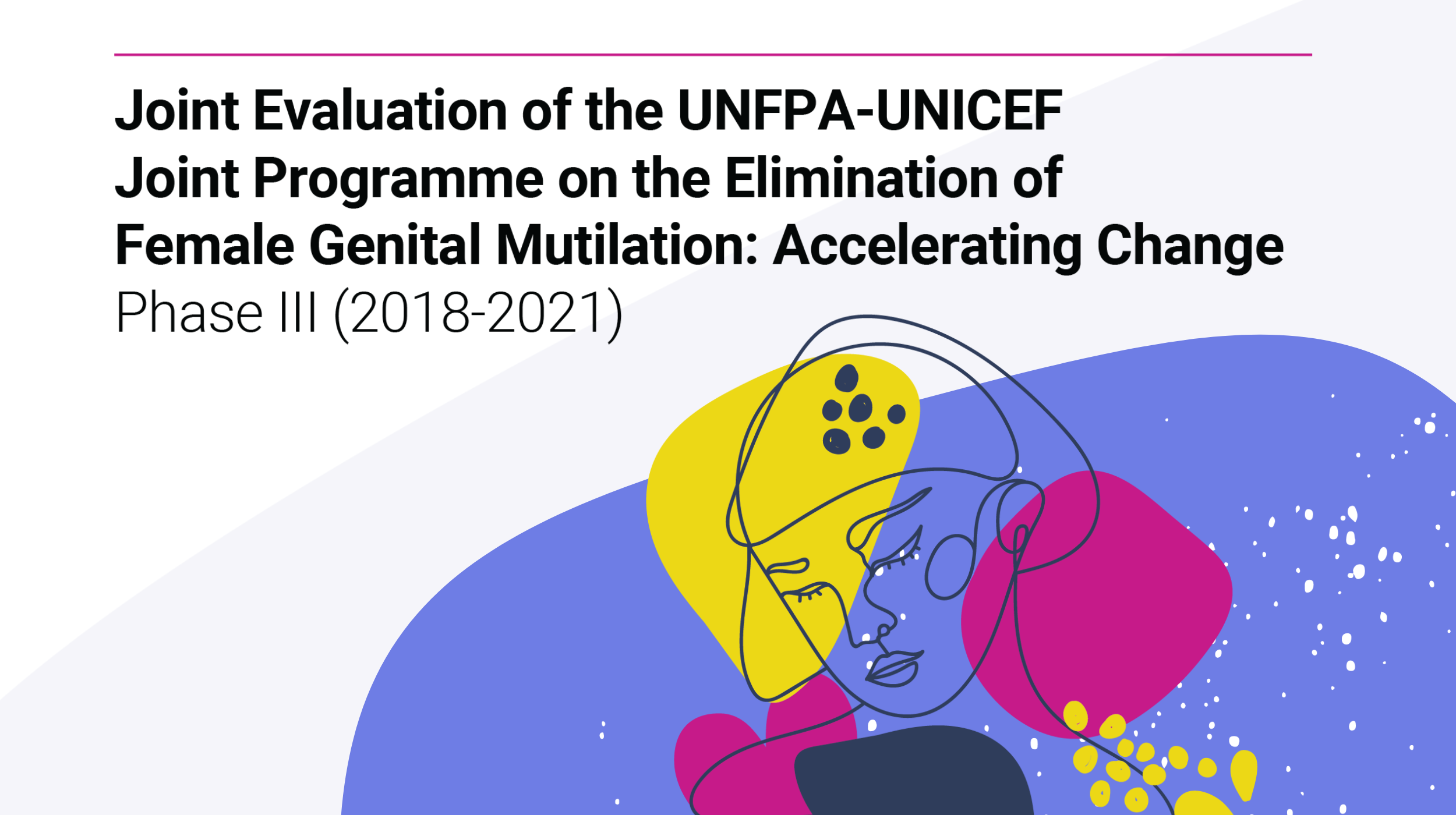Statement
A crisis within a crisis: Increased investment critical to end female genital mutilation as COVID-19 rages on
01 February 2022
News
Publication
Number of pages: 7
Publication date: 01 Apr 2021
Author: UNFPA
Publisher: UNFPA

The joint evaluation, conducted by the Evaluation Offices of UNFPA (lead agency) and UNICEF, assesses the programme contributions to outputs and outcomes during Phase III of the Joint Programme on the Elimination of Female Genital Mutilation (2018-2021). The evaluation provides evidence and lessons to inform the design of the Joint Programme post-Phase III to accelerate towards the Sustainable Development Goal target to end female genital mutilation (FGM) by 2030.
The evaluation finds that the Joint Programme continues to be a strategic and relevant response to the global issue of ending FGM. The Joint Programme has adapted effectively to COVID-19. The agility with which the programme has responded provides lessons for adapting to and understanding FGM within humanitarian settings. Yet, FGM receives insufficient consideration in humanitarian systems. The Joint Programme design is gender responsive, with a clear aspiration to move towards a gender-transformative approach, however, greater clarity is required to translate this approach to the country level.
Data collection methods

Among the several recommendations, the evaluation recommends the Joint Programme prioritize its global policy and advocacy work and should strategically strengthen the implementation of accountability systems. The Joint Programme should also advocate for fully funded national legal and policy frameworks, including addressing complex situations such as medicalization and cross-border FGM. A humanitarian approach should also be integrated within the post-Phase III Joint Programme design.
These lessons and evidence may also accelerate the implementation of the UNFPA strategic plan, 2022-2025, focused on ending gender-based violence and harmful practices against all women and girls, especially those that are furthest behind.
Further reads
Publication
Number of pages: 35
Publication date: 01 Dec 2020
Publisher: UNFPA
News
Annual Report
Publication date: 28 Sep 2021
Publisher: UNFPA & UNICEF
Resources
Resource date: Sep 2021
Publisher: UNFPA & UNICEF
Resources
Resource date: Sep 2021
Publisher: UNFPA & UNICEF
Resources
Resource date: Sep 2021
Publisher: UNFPA & UNICEF